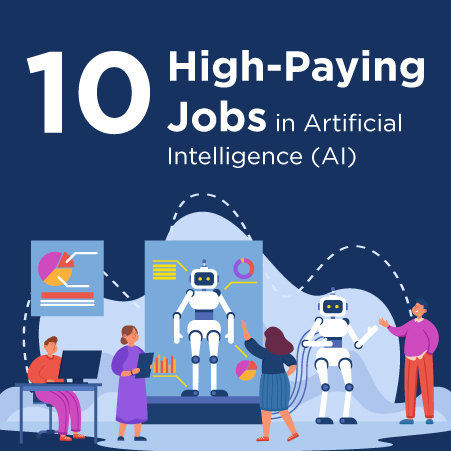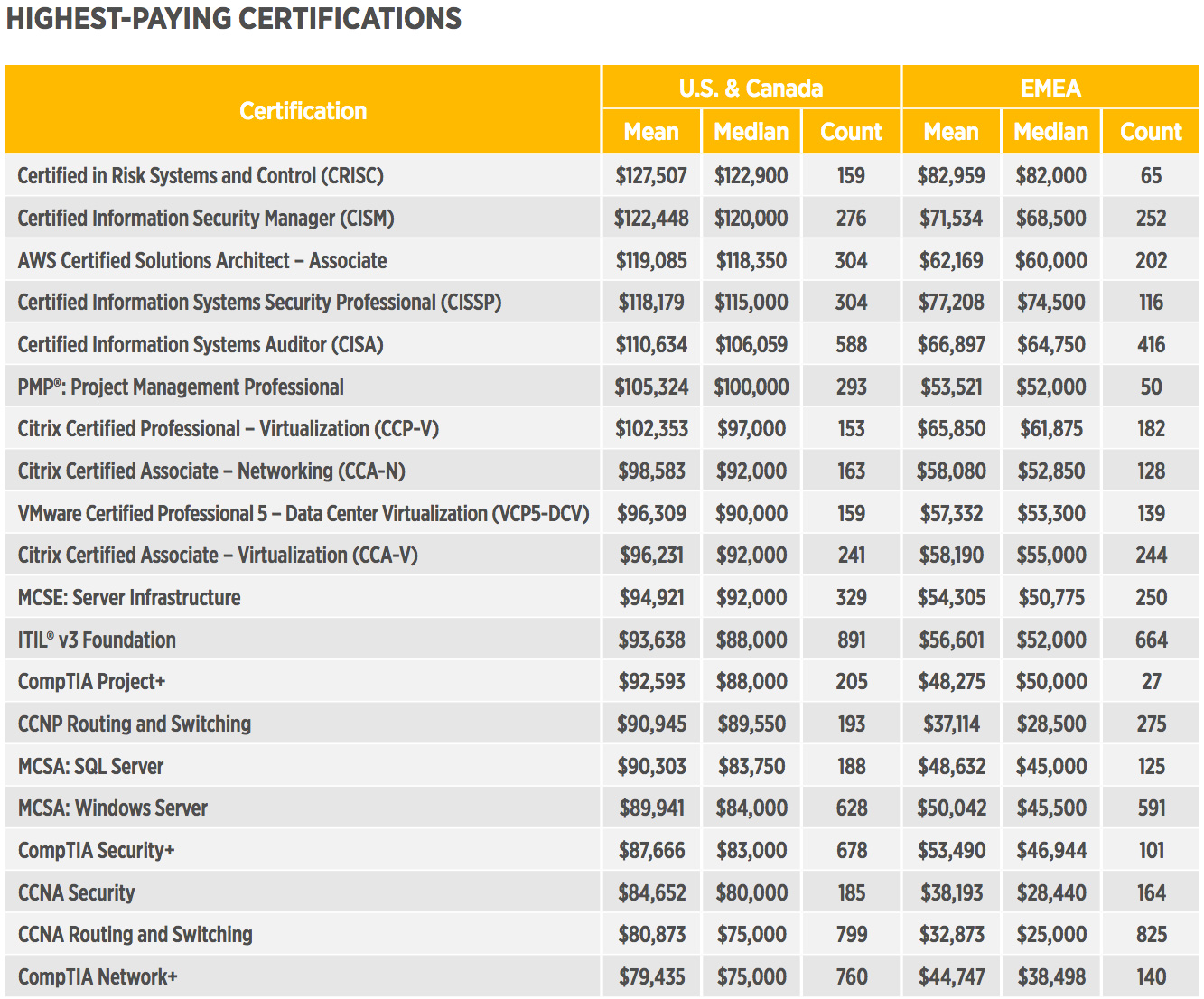Unlocking the Secrets of Tomorrow’s Job Market
The job market is undergoing a significant transformation, driven by technological advancements, demographic changes, and shifting industry needs. As a result, new skills and occupations are emerging, and it’s essential to be prepared for the future job market. The World Economic Forum predicts that by 2022, more than a third of the desired skills for most jobs will be comprised of skills that are not yet considered crucial to the job today. This shift highlights the importance of understanding the emerging jobs that will be in high demand in the future.
According to a report by the Bureau of Labor Statistics, employment of software developers is projected to grow 21% from 2020 to 2030, much faster than the average for all occupations. Similarly, the demand for data scientists and analysts is expected to increase by 14% during the same period. These emerging jobs require specialized skills and training, and it’s crucial to identify the most in-demand jobs of the future to stay ahead in the job market.
The rise of the gig economy, automation, and artificial intelligence is also creating new job opportunities. For instance, the growth of the gig economy has led to an increase in demand for freelancers and independent contractors. According to a report by Upwork, 63% of companies have remote workers, and the number is expected to increase in the coming years.
Moreover, the increasing focus on sustainability and environmental protection is creating new job opportunities in the field of sustainable energy and environment. The demand for solar and wind energy technicians, green building architects, and environmental sustainability specialists is expected to grow significantly in the coming years.
Understanding the emerging jobs that will be in high demand in the future is crucial for professionals, educators, and policymakers. By identifying the most in-demand jobs, individuals can upskill and reskill to remain relevant in the job market. Educators can develop curricula that prepare students for the emerging job market, and policymakers can create policies that support the growth of new industries and job creation.
In conclusion, the job market is undergoing a significant transformation, and it’s essential to be prepared for the future. By understanding the emerging jobs that will be in high demand in the future, individuals can take the necessary steps to upskill and reskill, and policymakers can create policies that support the growth of new industries and job creation.
How to Identify the Most In-Demand Jobs of the Future
Identifying the most in-demand jobs of the future requires a combination of research, analysis, and strategic thinking. One effective way to start is by researching labor market trends and analyzing industry reports. This can help you understand the current job market and identify areas that are likely to experience growth in the future.
Online resources such as job market analytics tools and career development platforms can also provide valuable insights into the most in-demand jobs. These tools can help you identify emerging job trends, skill gaps, and areas of high demand. For example, the Bureau of Labor Statistics’ Occupational Outlook Handbook provides detailed information on job growth prospects, median salaries, and required education and training.
Another way to identify in-demand jobs is by leveraging social media and professional networks. Follow industry leaders, job market experts, and career development professionals on social media platforms such as LinkedIn and Twitter. This can help you stay up-to-date on the latest job market trends and identify emerging job opportunities.
Additionally, consider attending job fairs, industry conferences, and career development workshops. These events can provide valuable opportunities to network with professionals in your desired field and learn about emerging job trends and opportunities.
When researching in-demand jobs, it’s essential to consider the skills and qualifications required for each role. This can help you identify areas where you may need to upskill or reskill to remain competitive in the job market. For example, jobs in data science and analytics require proficiency in programming languages, data visualization tools, and statistical software.
By combining these strategies, you can gain a deeper understanding of the most in-demand jobs of the future and make informed decisions about your career development. Remember to stay adaptable and be willing to continuously learn and upskill to remain competitive in the rapidly changing job market.
Some of the most in-demand jobs of the future include data scientists, cybersecurity experts, and healthcare professionals. These roles require specialized skills and training, and are likely to experience high demand in the coming years. By identifying these emerging job trends and developing the necessary skills and qualifications, you can position yourself for success in the job market of the future.
The Rise of the Data-Driven Economy: Jobs in Data Science and Analytics
The data-driven economy is transforming the way businesses operate, and jobs in data science and analytics are in high demand. Data scientists, analysts, and interpreters are driving business decision-making and innovation by extracting insights from complex data sets. These roles require a unique combination of technical skills, business acumen, and communication abilities.
According to a report by Glassdoor, the demand for data scientists is expected to increase by 14% in the next five years, making it one of the most in-demand jobs in the future. Data analysts and interpreters are also in high demand, with the Bureau of Labor Statistics predicting a 10% increase in employment opportunities by 2028.
To succeed in these roles, individuals need to possess a range of skills, including proficiency in programming languages such as Python, R, and SQL. They must also be familiar with data visualization tools like Tableau, Power BI, and D3.js, as well as statistical software like SAS and SPSS. Additionally, data scientists and analysts need to have strong business acumen, communication skills, and the ability to work with cross-functional teams.
The rise of big data and the Internet of Things (IoT) has created a vast amount of data that needs to be analyzed and interpreted. As a result, companies are looking for professionals who can extract insights from this data and drive business decisions. Data scientists and analysts are playing a critical role in this process, and their skills are in high demand.
Some of the key industries that are driving the demand for data scientists and analysts include finance, healthcare, and e-commerce. These industries are generating vast amounts of data, and companies need professionals who can analyze and interpret this data to drive business decisions.
In addition to technical skills, data scientists and analysts need to have strong business acumen and communication skills. They must be able to communicate complex data insights to non-technical stakeholders, including business leaders and customers. This requires a unique combination of technical expertise, business knowledge, and communication abilities.
Overall, jobs in data science and analytics are in high demand, and individuals with the right skills and qualifications are in a strong position to succeed in these roles. As the data-driven economy continues to evolve, the demand for data scientists and analysts is likely to increase, making these jobs some of the most in-demand jobs that will be in high demand in the future.
Healthcare and Biotechnology: The Future of Medicine and Wellness
The healthcare and biotechnology industries are undergoing significant transformations, driven by advances in medical research, technology, and changing demographics. As a result, new job opportunities are emerging in fields such as personalized medicine, genomics, and regenerative medicine. These jobs require specialized skills and qualifications, including advanced degrees in life sciences, medical research, and clinical practice.
Personalized medicine, for example, involves tailoring medical treatment to an individual’s unique genetic profile. This field requires professionals with expertise in genomics, bioinformatics, and clinical research. Genomic analysts, genetic counselors, and personalized medicine specialists are just a few examples of jobs that are in high demand in this field.
Regenerative medicine is another area of growth, with a focus on developing therapies that can repair or replace damaged tissues and organs. This field requires professionals with expertise in stem cell biology, tissue engineering, and biomaterials. Regenerative medicine specialists, tissue engineers, and biomaterials scientists are just a few examples of jobs that are emerging in this field.
The demand for healthcare professionals is also increasing, driven by an aging population and the need for more effective and efficient healthcare systems. Advanced practice nurses, physician assistants, and healthcare administrators are just a few examples of jobs that are in high demand in this field.
To succeed in these roles, individuals need to possess a range of skills, including advanced degrees in life sciences, medical research, and clinical practice. They must also be familiar with emerging technologies, such as CRISPR gene editing and 3D printing, and have strong communication and collaboration skills.
The healthcare and biotechnology industries are expected to continue growing in the coming years, driven by advances in medical research and technology. As a result, jobs in these fields are likely to be in high demand, making them some of the most in-demand jobs that will be in high demand in the future.
Some of the key skills and qualifications required for jobs in healthcare and biotechnology include:
- Advanced degrees in life sciences, medical research, and clinical practice
- Expertise in emerging technologies, such as CRISPR gene editing and 3D printing
- Strong communication and collaboration skills
- Familiarity with healthcare systems and policies
- Ability to work in interdisciplinary teams
Overall, the healthcare and biotechnology industries offer a range of exciting job opportunities for individuals with the right skills and qualifications. As these industries continue to evolve, it’s likely that we’ll see even more emerging jobs in the future.
The Future of Work: Automation, AI, and the Gig Economy
The future of work is undergoing a significant transformation, driven by advances in automation, artificial intelligence, and the gig economy. As a result, new job opportunities are emerging in fields such as AI development, deployment, and maintenance, as well as the growing demand for freelancers and independent contractors in the gig economy.
Automation and AI are changing the way businesses operate, with machines and algorithms increasingly taking over routine and repetitive tasks. This shift is creating new job opportunities in fields such as AI development, deployment, and maintenance. AI engineers, data scientists, and machine learning experts are just a few examples of jobs that are in high demand in this field.
The gig economy is also on the rise, with more and more people choosing to work as freelancers or independent contractors. This shift is creating new job opportunities in fields such as writing, design, and programming. Freelance writers, designers, and programmers are just a few examples of jobs that are in high demand in this field.
However, the rise of automation and AI also poses challenges for workers, particularly those in routine and repetitive jobs. As machines and algorithms take over these tasks, workers will need to adapt and develop new skills to remain relevant in the job market.
To succeed in this new job market, workers will need to develop skills such as creativity, problem-solving, and critical thinking. They will also need to be adaptable and willing to continuously learn and upskill.
Some of the key skills and qualifications required for jobs in AI development, deployment, and maintenance include:
- Advanced degrees in computer science, engineering, or related fields
- Proficiency in programming languages such as Python, Java, and C++
- Experience with machine learning algorithms and data science tools
- Strong problem-solving and critical thinking skills
- Ability to work in interdisciplinary teams
Similarly, freelancers and independent contractors in the gig economy will need to develop skills such as:
- Strong communication and project management skills
- Ability to work independently and manage time effectively
- Proficiency in tools such as writing, design, and programming software
- Strong networking and marketing skills
- Ability to continuously learn and upskill
Overall, the future of work is undergoing a significant transformation, and workers will need to adapt and develop new skills to remain relevant in the job market. However, this shift also creates new job opportunities in fields such as AI development, deployment, and maintenance, as well as the growing demand for freelancers and independent contractors in the gig economy.
Cybersecurity and Information Assurance: Protecting the Digital World
As technology advances and more aspects of life become digitized, the demand for cybersecurity experts is skyrocketing. Cybersecurity is one of the jobs that will be in high demand in the future, with the Bureau of Labor Statistics predicting a 31% growth in employment opportunities through 2029. This growth is driven by the increasing need for organizations to protect themselves against cyber threats, data breaches, and other forms of cybercrime.
Cybersecurity experts play a critical role in safeguarding computer systems, networks, and sensitive information from unauthorized access, use, disclosure, disruption, modification, or destruction. This includes a range of tasks, such as monitoring systems for security breaches, developing and implementing security protocols, and responding to incidents. Cybersecurity professionals must stay up-to-date with the latest threats and technologies, making it a constantly evolving field.
Some of the most in-demand jobs in cybersecurity include security analysts, penetration testers, and incident responders. Security analysts are responsible for monitoring systems and identifying potential security threats, while penetration testers simulate cyber attacks to test an organization’s defenses. Incident responders are the first line of defense in the event of a security breach, working to contain and mitigate the damage.
To succeed in these roles, cybersecurity professionals require a strong foundation in computer systems, networks, and programming languages, as well as knowledge of security frameworks and protocols. Many cybersecurity professionals hold advanced degrees in computer science, information assurance, or related fields, and obtain certifications such as CompTIA Security+ or Certified Information Systems Security Professional (CISSP).
As the digital world continues to expand, the need for skilled cybersecurity professionals will only continue to grow. By pursuing a career in cybersecurity, individuals can play a critical role in protecting the digital world and ensuring the security of sensitive information. With the right skills and knowledge, cybersecurity professionals can thrive in this high-demand field and help shape the future of cybersecurity.
Sustainable Energy and Environment: The Future of Green Jobs
The shift towards sustainable energy and environmental sustainability is driving the growth of green jobs, which are expected to be in high demand in the future. As concern for climate change and environmental degradation continues to rise, industries are investing heavily in renewable energy sources, sustainable infrastructure, and eco-friendly technologies. This trend is creating a wide range of job opportunities in fields such as solar and wind energy, green building, and environmental sustainability.
One of the most in-demand jobs in sustainable energy is solar panel installation. As the cost of solar panels continues to decrease, more homeowners and businesses are turning to solar energy as a viable alternative to traditional fossil fuels. Solar panel installers require a strong understanding of electrical systems, as well as knowledge of local building codes and regulations.
Wind energy is another rapidly growing field, with wind turbine technicians in high demand. These technicians are responsible for installing, maintaining, and repairing wind turbines, which requires a strong understanding of mechanical and electrical systems. The Bureau of Labor Statistics predicts that employment of wind turbine technicians will grow 57% through 2029, much faster than the average for all occupations.
Green building is also a rapidly expanding field, with architects, engineers, and construction managers in high demand. Green buildings are designed to be environmentally sustainable, using materials and systems that minimize waste and reduce energy consumption. Professionals in this field require a strong understanding of sustainable building practices, as well as knowledge of local building codes and regulations.
Environmental sustainability is another key area of growth, with jobs available in fields such as conservation, sustainability consulting, and environmental policy. These professionals work with organizations to develop and implement sustainable practices, reduce waste, and minimize environmental impact.
To succeed in these roles, individuals require a strong foundation in environmental science, engineering, and policy. Many green jobs require advanced degrees, certifications, or specialized training. However, the rewards are well worth the investment, as green jobs offer a unique opportunity to make a positive impact on the environment while enjoying a fulfilling and challenging career.
As the world continues to shift towards sustainable energy and environmental sustainability, the demand for green jobs will only continue to grow. By pursuing a career in this field, individuals can play a critical role in shaping a more sustainable future and enjoy a rewarding and challenging career in the process.
Preparing for the Future: Upskilling and Reskilling for Emerging Jobs
The job market is undergoing a significant transformation, driven by technological advancements, demographic changes, and shifting industry needs. As a result, many jobs that exist today may not exist in the future, while new jobs that will be in high demand in the future are emerging. To remain relevant and competitive, it is essential to upskill and reskill for emerging jobs.
One of the most effective ways to upskill and reskill is through online learning platforms. These platforms offer a wide range of courses and certifications in emerging fields such as data science, artificial intelligence, and cybersecurity. Online learning platforms are flexible, affordable, and accessible, making it easy to learn new skills at your own pace.
Professional certifications are another way to demonstrate your expertise and commitment to a particular field. Certifications such as CompTIA, AWS, and Google Cloud are highly valued by employers and can significantly enhance your job prospects. Additionally, certifications can help you stay up-to-date with the latest technologies and trends in your field.
Networking is also a crucial aspect of upskilling and reskilling. Attend industry events, conferences, and meetups to connect with professionals in your desired field. Networking can help you learn about new job opportunities, get advice from experienced professionals, and stay informed about industry trends.
Lifelong learning is essential in today’s rapidly changing job market. With new technologies and innovations emerging every day, it is essential to stay adaptable and committed to learning. By upskilling and reskilling, you can future-proof your career and remain relevant in the job market.
Moreover, many employers are now looking for employees who can demonstrate a willingness to learn and adapt. By investing in your own upskilling and reskilling, you can demonstrate your value to potential employers and increase your chances of getting hired.
In conclusion, upskilling and reskilling are essential for success in the future job market. By leveraging online learning platforms, professional certifications, and networking strategies, you can prepare yourself for emerging jobs and remain competitive in the job market. Remember, lifelong learning is key to future-proofing your career and achieving success in the rapidly changing job market.
As the job market continues to evolve, it is essential to stay ahead of the curve. By upskilling and reskilling, you can position yourself for success in the jobs that will be in high demand in the future. Don’t wait – start investing in your future today.







